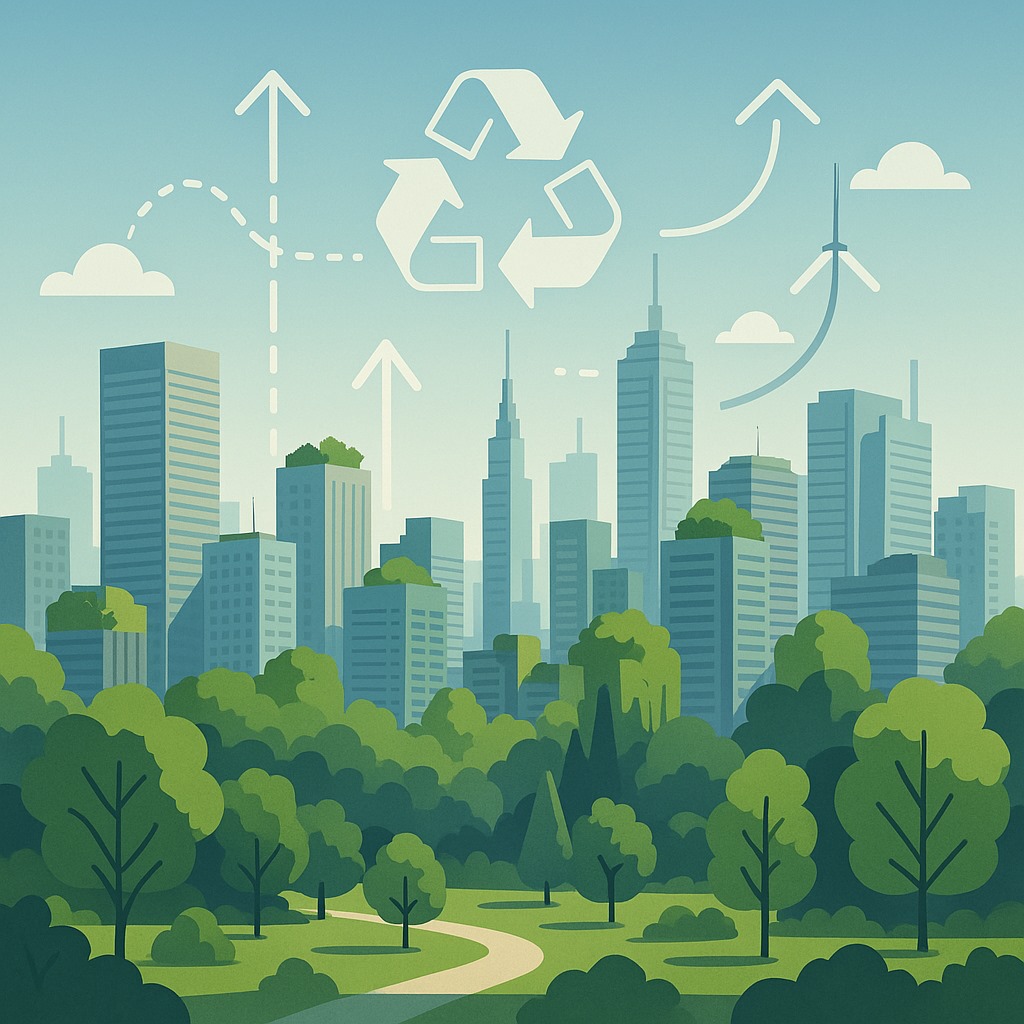Rethinking Consumption: The Promise of the Circular Economy
In today’s world, where environmental degradation and resource depletion are growing concerns, the traditional linear model of “take, make, dispose” is no longer practical. The circular economy offers a transformative alternative, one that emphasizes recycling, reuse, and waste reduction to foster long-term environmental sustainability.
Rushali Mariam
3/27/20253 min read


From Linear to Circular: A Paradigm Shift
The linear economic model has driven industrial growth for a really long time but it has also led to an excessive wastage of resources. In contrast, the circular economy aims to close the loop by designing products and processes that minimize waste and maximize resource efficiency. By rethinking consumption and production, businesses and communities can transition to systems where every material is reused or recycled. The transition to a circular economy pushes people to reconsider and think carefully before consuming any product. This shift fosters innovation in areas such as product design, supply chain management, and consumer engagement.
Rethinking Product Design: The Role of Innovation
One of the most exciting aspects of the circular economy is how it forces the market to reinvent product design. Rather than focusing solely on aesthetics or functionality, designers now incorporate sustainability from the ground up. This means selecting materials that are either biodegradable or easily recyclable and developing products that can be effortlessly disassembled for repair or repurposing.
Modern companies are now experimenting with modular designs that allow components to be upgraded or replaced without discarding the entire product. This not only extends the product’s lifespan but also empowers consumers to make eco-conscious decisions. Moreover, these design strategies encourage the development of new business models such as rentals or products- as- a service- that prioritize longevity and shared access over ownership.
Business Models That Champion Sustainability
The circular economy isn’t just about sustainable production. In fact, it is about reshaping how businesses interact with their customers. Traditional sales models are being pushed aside for subscription-based and pay-per-use services that maximize resource efficiency. For instance, companies are increasingly exploring product-sharing platforms, where a single product can serve multiple users over its lifetime. This not only reduces the overall number of products produced but also diminishes the environmental footprint associated with manufacturing and disposal.
Such innovative business models signal a broader trend: the move toward value creation through sustainability. Instead of profiting from planned obsolescence, companies that embrace the circular economy earn customer loyalty by delivering durable, high-quality products backed by comprehensive support devices. This creates a win-win scenario where environmental benefits align with economic incentives- a core promise of the circular approach.
A Glimpse of Smart Solutions in Action
While the circular economy is fundamentally about changing our consumption habits, its practical implementation often relies on modern technologies. For example, smart home solutions like Chewie, seamlessly integrate sustainable practices into everyday life. Chewie, an AI-powered system optimizes the management of home wet waste. Although its primary purpose is to streamline waste processing and reduce household odors and health hazards, it also embodies the principles of the circular economy by transforming wet waste into Regen Soil. Smart solutions of this kind not only simplify home management for busy people and urban dwellers but also reinforce the goals of the circular economy and efficiency.
Transforming Consumer Behaviour
A critical driver of the circular economy is the shift in consumer mindset. For years, success was correlated with the volume of products consumed. Today, a growing number of consumers are prioritizing sustainability and ethical practices over sheer quantity. This trend is particularly evident among high-net-worth individuals and urban professionals who increasingly value quality, transparency, and long-term impact. Modern customers are now embracing a new idea of access over ownership. They are more likely to invest in services that deliver ongoing value rather than purchasing disposable items. This behavioral transformation is pivotal to the circular economy’s success
Embracing a Circular Future
The circular economy is not just a trend but it is a blueprint for long-term environmental care and resilience. By designing out waste and maximizing resource reuse we can conserve resources, reduce emissions, and foster a more sustainable economy. When industries adopt circular principles, they create ripple effects that benefit entire communities.
As we move forward, it’s clear that the future of sustainable growth lies in creating systems where resources are continually renewed. Whether it is through innovative product design or new business models that prioritize shared access over ownership, the circular economy offers a compelling vision for a resilient and prosperous future.
Support
E: social@mankomb.com
M: 9739243943 (9am-5pm)
Connect
Connect. Follow. Stay connected
Copyright © 2025 | Mankomb Technologies | All Rights Reserved
